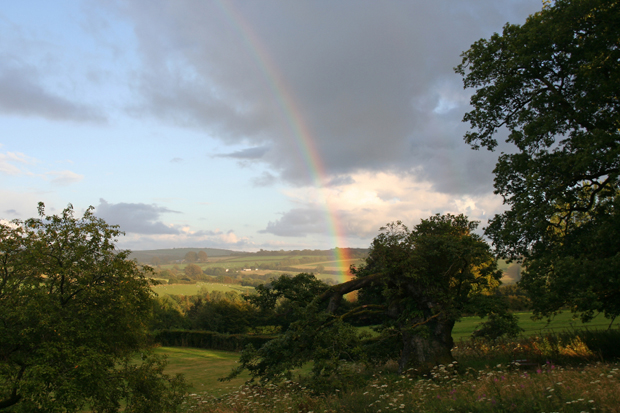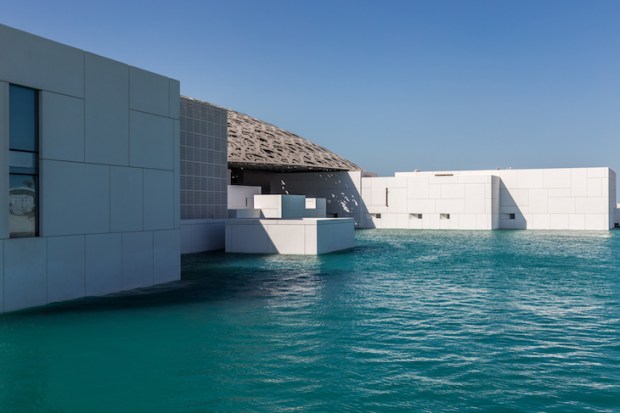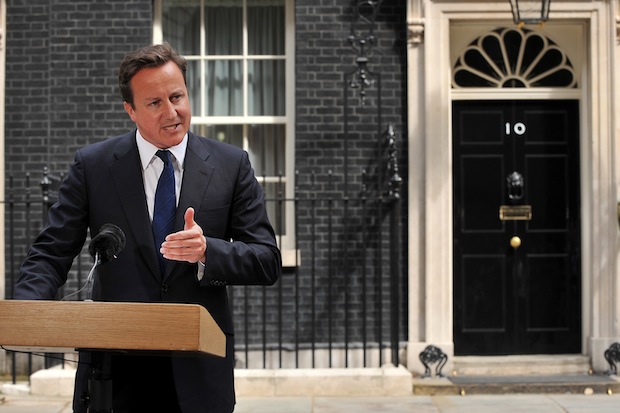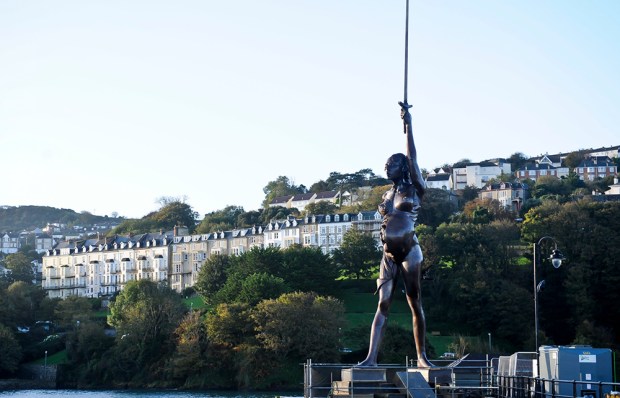‘Devon, Devon, Devon/ Where it rains six days out of seven.’ Nothing beats a British seaside holiday. And north Devon is especially blessed when it comes to vibrant weather patterns. We have watched in awe this summer as high-pressure systems from the Continent have collapsed in the face of sturdy Atlantic lows and extreme weather warnings punctuated the news. Our companion in all this has been the Met Office, whose forecasts are dashingly presented by the hunky Tomasz Schafernaker. So it was a shock to see the third-rate bureaucrats running the BBC replace it with some cheap and rather remote New Zealand outfit. Until recently, an institution like the BBC would have thought that supporting our science base, investing in UK-based research and development and having pride in a globally admired public organisation was part of its remit. No longer. It makes defending the BBC from the encircling Tory hordes all the harder.
If Devon was damp, the Isle of Mull was drenched. But my son and I had a joyous few days visiting an old friend, Guy Grieve, who runs a hand-picked shellfish business. His divers individually harvest each scallop, a contrast to the dreadful dredgers raping the Scottish seabeds. As mist and drizzle fell across the Sound of Mull, we filleted, fried and grilled king scallops with delicious results. I also managed to make it to the mystical Isle of Iona. With its white beaches, crystal-clear sea and incredible fauna, it all felt a little like the Scilly isle of Tresco, but joyfully free of the red-trouser brigade.
Accompanying me this summer has been Edmund de Waal — in literary rather than personal form. The celebrated potter has written a beautiful new book on the history and meaning of porcelain. Reviewing it finally inspired me to read his previous bestseller, The Hare with Amber Eyes, which traces his family’s netsuke heirlooms through the trials of the 20th century. I feel I could now offer a half-decent undergraduate course in De Waal studies: the literature of collection and loss; inheritance and possession; cultural exchange and Proustian association. In both works, his powers of description, aesthetic judgment and narrative pace are startling. Across the two books, I only counted one repetition: ‘yolky yellow’ is a phrase he enjoys just once too often.
I have never sought once to ask why Stoke-on-Trent has a neighbourhood called ‘Dresden’. De Waal has the answer: this was where the Dresden Porcelain Company was founded — with DPCO on the backstamp to distinguish themselves from the slightly more renowned Dresden pottery, with its crossed blue swords. This tale of Anglo-German exchange seems particularly pertinent as the Potteries prepares for the upcoming British Ceramics Biennial. After the success of the Tower of London poppies (made with clay and fired from kilns in Stoke), we all feel a bit sore the poppies are not touring to Stoke this year, but in the Spode China Hall we will have an equally stupendous ceramic reflection on the Great War’s centenary.
I break off the family holiday to campaign for my colleague Liz Kendall in the Labour leadership election. In Ipswich and Colchester, I found party members not so smitten by Corbynmania. In both constituencies, more people voted Tory than Labour: it remains unclear to me why heading further left would appeal to them. At every leadership election since the demise of Tony Blair the party has chosen a more left-wing candidate, and while Neil Kinnock might have ‘got his party back’, the country got a Tory government back. What is also evident is the anger among party members who have spent years delivering leaflets and are being called ‘Tories’ for not supporting Corbyn by people who joined the party weeks ago. We are entering the era of emoji politics, where identity and emotion suffocate debate and rationality. Those of us in the Labour centre ground need desperately to understand the former, but never give up on the latter.
Returning to Westminster, I discover another piece of England has been flogged off. The Old War Office on Whitehall, the setting for campaigns by Kitchener, Churchill, Lloyd George and T.E. Lawrence, is being developed by the Hinduja Group into desperately needed high-value flats and a luxury hotel. With Speaker Bercow threatening to have us out of the Commons for a refit, I fear this could well be what’s in store for Parliament. A crumbling Westminster, an autumn riven by Osborne’s axe, and a Labour party harried by Jezuits and Jacorbyns — I am already missing the driving rain of Woolacombe beach and the crashing spray of Heddon’s Mouth. Because on the seventh day, when it stops raining, Devon is very heaven.
Got something to add? Join the discussion and comment below.
Get 10 issues for just $10
Subscribe to The Spectator Australia today for the next 10 magazine issues, plus full online access, for just $10.
Tristram Hunt is Labour MP for Stoke-on-Trent Central.
You might disagree with half of it, but you’ll enjoy reading all of it. Try your first month for free, then just $2 a week for the remainder of your first year.














Comments
Don't miss out
Join the conversation with other Spectator Australia readers. Subscribe to leave a comment.
SUBSCRIBEAlready a subscriber? Log in